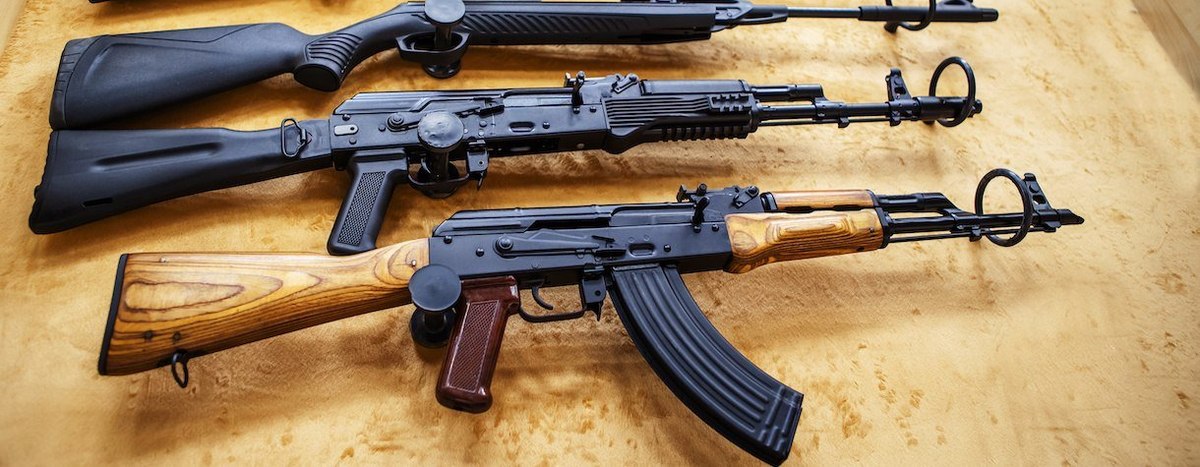Gun violence in the U.S. is on the rise, with nearly 2,000 mass shootings documented from 2020 to 2022 as compared to 1,101 incidents in the three years prior. As mass shooting events continue — since the start of 2023, more than 100 incidents in which at least four people other than the shooter were shot — Americans have become all too familiar with calls for thoughts, prayers, and legislation.
While gun violence is a clear public concern in the U.S., the YouGov Social Change Monitor shows that other issues consistently take precedence over gun policy. Over the past two years, gun control has frequently placed among the bottom tier of major political issues in the biweekly survey of social attitudes among U.S. adults that tracks public prioritization of 10 issues, in terms of the share of Americans naming it as their most important issue. Gun control's importance has, however, spiked following a handful of high-profile incidents of gun violence. The largest spike occurred in May 2022, following the Robb Elementary School shooting in Uvalde, Texas. That month, gun control became one of the top three most important issues for 14% of Americans. (The YouGov/Economist Poll found a similar trend among registered voters of placing greater importance on gun control following Uvalde).
Amidst concerns over mass shootings, the deep political divide over gun ownership, rights, and policy persists. More than half (55%) of Americans believe gun laws should be more restrictive than they are today, but Democratic and Republican views differ starkly on the matter. Democrats (79%) are 24 percentage points more likely than the average American to say gun laws should be more restrictive as compared to 29% of Republicans who believe the same. Beliefs regarding gun rights in the country are similarly divided across party lines. Most Democrats (56%) say that the Constitution only protects access to guns for militias while just 20% of Republicans agree; 80% say the Constitution protects unrestricted access to guns for everyone.
Despite widespread overall support for gun control and majority belief in gun rights among Republicans, 59% of Americans report that they’ve engaged in no political activities in the past 30 days in support or opposition to gun access. However, younger generations may be the catalyst for change regarding policy on guns.
The opinions of young Republicans, in particular, differ from those of their older counterparts. Gen Z and Millennial Republicans — adults born in 1982 or more recently — are more likely than older Republicans to believe that gun laws should be more restrictive (39% vs. 22%). Support for more restrictive gun laws has continued to trend upwards among young Republicans – to 47% in February 2023 from 41% in August 2022 – while members of the older generation of Republicans are more likely to believe gun laws are sufficient as they are today. Similarly, 32% of young Republicans think the Constitution protects access to guns only for militias – more than double the share of older Republicans (13%) who think so.
This is in contrast to Millennial and Gen Z Democrats (69%) who, compared to their older counterparts (87%), are less supportive of restrictive gun laws. Despite this divergence, Democrats of all ages are highly likely to support more restrictive gun laws. Democrats tend to be more cohesive than Republicans in their views on guns: Younger and older Democrats are about equally likely — 55% and 56%, respectively — to believe that the Constitution protects access to guns only for militias.
Overall, Gen Zers and Millennials are not more progressive on gun control compared to members of older generations. Narrow majorities of Americans across age groups — 55% Gen Zers and Millennials and 54% older Americans — support more restrictive gun laws. The true generational divide appears within each major party: Younger Republicans signal a willingness to consider a stricter stance on gun control while most younger Democrats agree but not at the rate of their party's older supporters. As young Americans more frequently report registering to vote and helping others register to vote, the generations most affected by gun violence will have increasing opportunities to make an impact on gun policy.
— Taylor Orth contributed to this article
Methodology: The YouGov Social Change Monitor is a biweekly survey of a nationally representative sample of 1,500 U.S. adults interviewed online, including quarterly interviews (10,500) about guns. A total of 108,653 interviews were conducted between June 30, 2020 and March 6, 2023. This sample was weighted according to gender, age, race, and education based on the 2018 American Community Survey, conducted by the U.S. Census Bureau, as well as 2020 Presidential vote choice. Respondents were selected from YouGov’s opt-in panel to be representative of all U.S. adults. The margin of error is approximately 0.5% for the entire sample.
Image: Adobe Stock (Dmitry)









